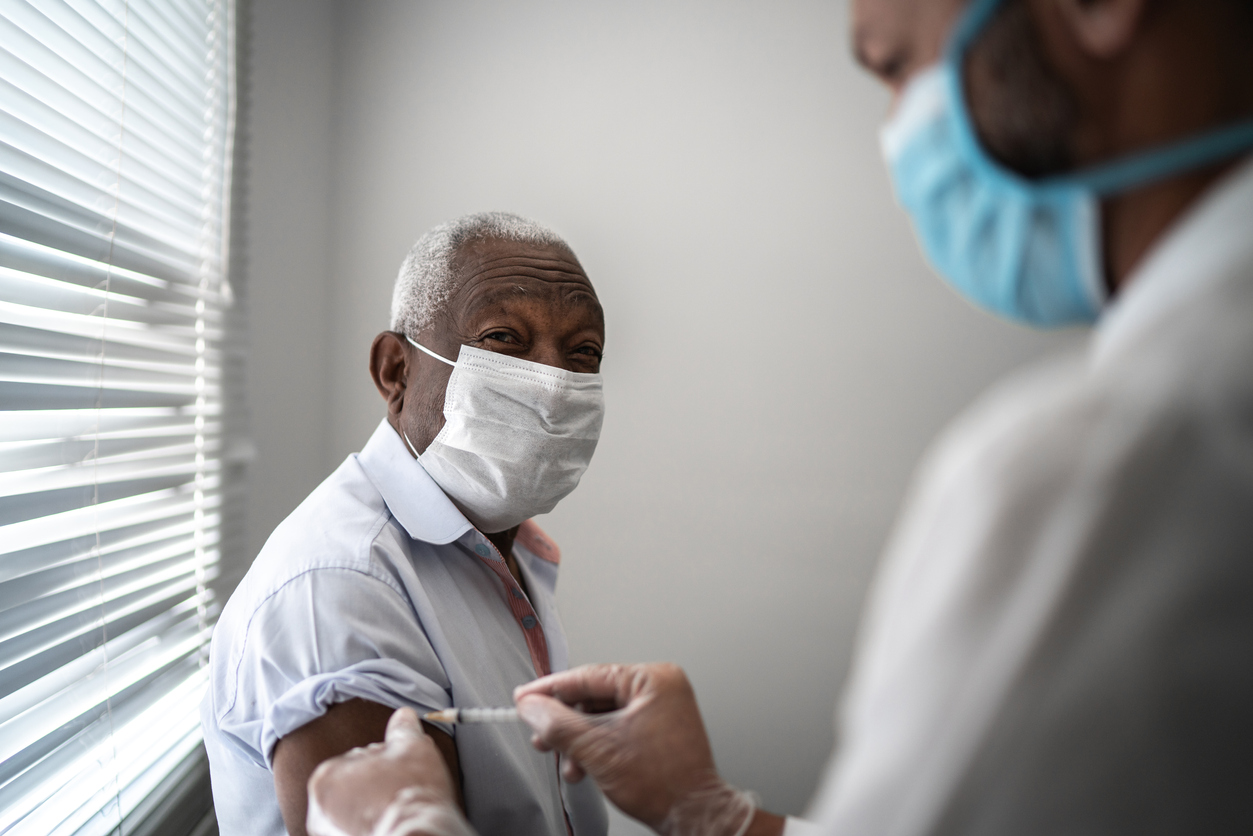After nearly a year of development, vaccines designed to combat the spread of the novel coronavirus have finally been rolled out to individuals around the world. As of April 2021, more than 26% of all U.S. citizens have received the COVID vaccine. Despite these promising numbers, there remains reluctance in receiving the vaccine, particularly among residents of nursing homes and other long-term care facilities. Vaccines serve to supplement the protection of nursing home insurance. By dispelling the myths surrounding vaccine safety, nursing home managers and staff can help residents make informed decisions about the vaccine, potentially preventing avoidable illnesses and deaths.
Vaccine Hesitancy
As millions of people line up to receive one of the three COVID-19 vaccines approved for emergency use by the U.S. Food and Drug Administration (FDA), there remains questions about their effectiveness, their safety, and their potential for adverse reactions. This has led to a situation the World Health Organization has dubbed “vaccine hesitancy”, defined as a delay in acceptance of vaccines or refusal of those vaccines despite their availability to members of the public.
How serious is vaccine hesitancy? According to one public survey conducted by the Pew Research Center, almost 49% of respondents indicated that they definitely or probably would not receive the COVID vaccine. In other words, nearly half of all people would not elect to become vaccinated, putting the goal of “herd immunity” out of reach. A follow-up survey conducted by Pew in February 2021 indicated a positive shift, however, with more people choosing to be vaccinated or having already received at least one dose. In nursing homes, immunization programs are a critical part of risk management, which also includes nursing home insurance coverages and safety-oriented practices to keep residents and staff safe. Eliminating vaccine hesitancy among long-term care residents is a crucial part of breaking the infection cycle.
Common Myths About COVID Vaccines
Since they were first developed and tested, COVID-19 vaccines have been surrounded by myths. Some of the more common vaccine myths include:
- COVID vaccines were rushed through the testing and approval phases.
- The vaccine can give you COVID-19.
- Having been infected by COVID-19 in the past means you do not need the vaccine.
- The side effects of the vaccine are life-threatening.
- The vaccine scrambles DNA, potentially causing life-altering effects.
- The technology used to develop the vaccine is new and has not been proven.
Vaccine development, including the technology behind it, has been in the works for many years. Although the development and testing phases appear to have happened quickly, immunization experts have expressed confidence that all safety protocols were rigorously followed. The vaccine has demonstrated incredible safety, with only a small number of adverse reactions among the millions of people who have received one or both doses of the vaccine.
Building Vaccine Confidence in Nursing Home Residents
In addition to nursing home insurance, vaccination have long been a vital part of risk management in long-term care facilities. Close quarters and at-risk individuals with underlying health conditions necessitate a robust immunization strategy to protect residents’ health. COVID vaccines are a part of the effort to eradicate the coronavirus among nursing home populations. To build vaccine confidence, the U.S. Centers for Disease Control and Prevention (CDC) has developed guidelines for caregivers. Six ways to build COVID vaccine confidence are:
- Encouraging community leaders to be champions of the vaccine and its distribution.
- Providing opportunities for residents to voice their concerns about the vaccine and to ask questions about their safety and effectiveness.
- Providing education about COVID vaccines to residents, including how they were developed and tested, monitoring programs for safety, and how millions of people have already received at least one dose.
- Verifying information by fact-checking on credible information resources. Organizations like the World Health Organization, CDC, and local/state public health agencies can provide accurate and truthful information to help dispel any myths or concerns surrounding the vaccines.
- Encouraging nursing home managers and staff to serve as role models by receiving the vaccine.
- Sharing information with residents and family members.
The COVID-19 vaccine, although relatively new, is based on sound scientific principles. These vaccines have the potential to save thousands of lives, particularly in nursing homes where elderly residents are at severe risk of complications from the virus itself. By dispelling vaccine myths and supporting vaccine confidence, staff members supplement the protections of nursing home insurance and other risk management practices.
About Caitlin Morgan
Caitlin Morgan specializes in insuring assisted living facilities and nursing homes and can assist you in providing insurance and risk management services for this niche market. Give us a call to learn more about our programs at (877) 226-1027.


